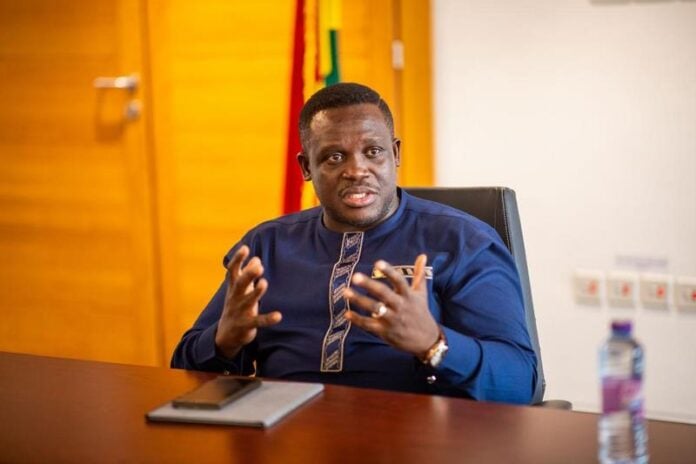The Ghanaian telecommunications landscape is poised for a significant overhaul as the government pushes for enhanced service quality and affordability. Samuel Nartey George, Minister for Communication, Digital Technology and Innovations, has delivered a stern ultimatum to the nation’s leading telecom operators: improve service quality drastically by the end of 2025 or face substantial penalties. This decisive stance signals a shift from lenient regulatory oversight to a more results-oriented approach, prioritizing consumer satisfaction and holding operators accountable for their performance. The Minister’s pronouncements, following a meeting with the CEOs of MTN, Telecel, and AT, underscore the government’s commitment to ensuring that Ghanaians receive the level of service they deserve in the rapidly evolving digital age. This new era of stringent oversight emphasizes performance over mere infrastructure deployment, shifting the focus from the presence of network equipment to the actual quality of service experienced by end-users.
The Minister’s warning is not merely rhetorical; it is backed by a concrete action plan. A comprehensive nationwide performance test is scheduled for the third quarter of 2025. This evaluation will serve as a benchmark, assessing the operators’ adherence to established quality standards. Operators failing to meet these standards will face significant financial penalties. Importantly, the Minister announced a consumer-centric approach to the distribution of these fines, with approximately 40% of the collected amount being returned directly to affected consumers in the form of data bundles or airtime bonuses. This measure reflects a commitment not only to penalizing poor service but also to directly compensating consumers for the inconvenience and subpar experience they have endured. It introduces a direct link between operator performance and consumer benefit, further incentivizing operators to prioritize service quality.
The issue of spectrum allocation also featured prominently in the Minister’s address. With the allocation process recently concluded and operators given until June 30th to accept the allocated spectrum, the Minister emphasized the urgency of translating this resource into tangible improvements for consumers. He stated explicitly that the impact of the spectrum rollout must be evident to the Ghanaian public by the end of 2025. This directive sets a clear timeline for operators to utilize the newly acquired spectrum to enhance network capacity and improve the quality of service delivered to their customers. The expectation is that the allocation of this valuable resource will directly translate into improved network coverage, faster data speeds, and a more reliable overall user experience.
Addressing the crucial issue of data affordability, the Minister revealed that a roadmap is being developed to gradually reduce data costs in Ghana. This initiative aims to strike a balance between ensuring affordability for consumers and maintaining a sustainable market environment for operators. The phased approach to price reduction suggests a carefully considered strategy, designed to avoid market disruptions while progressively making data services more accessible to a broader segment of the Ghanaian population. The objective is to foster digital inclusion by making data services more affordable without compromising the financial viability of the telecommunications sector.
In response to the Minister’s pronouncements, the telecom operators have outlined their respective improvement plans. MTN, the largest operator in Ghana, has committed a significant investment of $230 million to enhance its network infrastructure and expand its service outlets. This substantial investment underscores MTN’s commitment to bolstering its network capacity and improving customer service touchpoints. Telecel, another key player in the Ghanaian telecom market, is focusing on bolstering network coverage and enhancing its support services. This strategy prioritizes expanding the reach of their network and improving the responsiveness and effectiveness of their customer support channels. AT, the third operator in the discussion, has pledged to deliver visible improvements in network quality by early 2026, albeit slightly beyond the government’s initial deadline.
These commitments from the telecom operators represent a positive step toward addressing the concerns raised by the Minister and meeting the demands of the Ghanaian public for improved service quality and affordability. The coming months and years will be crucial in determining whether these pledges translate into tangible improvements in the user experience. The nationwide performance test scheduled for Q3 of 2025 will serve as a critical evaluation point, providing an objective assessment of the progress made by each operator. The government’s commitment to holding operators accountable, coupled with the prospect of financial penalties and consumer compensation, creates a powerful incentive for the telecom companies to prioritize service quality and deliver on their promises. The ultimate objective is to create a vibrant and competitive telecommunications sector that effectively serves the needs of the Ghanaian people and contributes to the country’s ongoing digital transformation.














